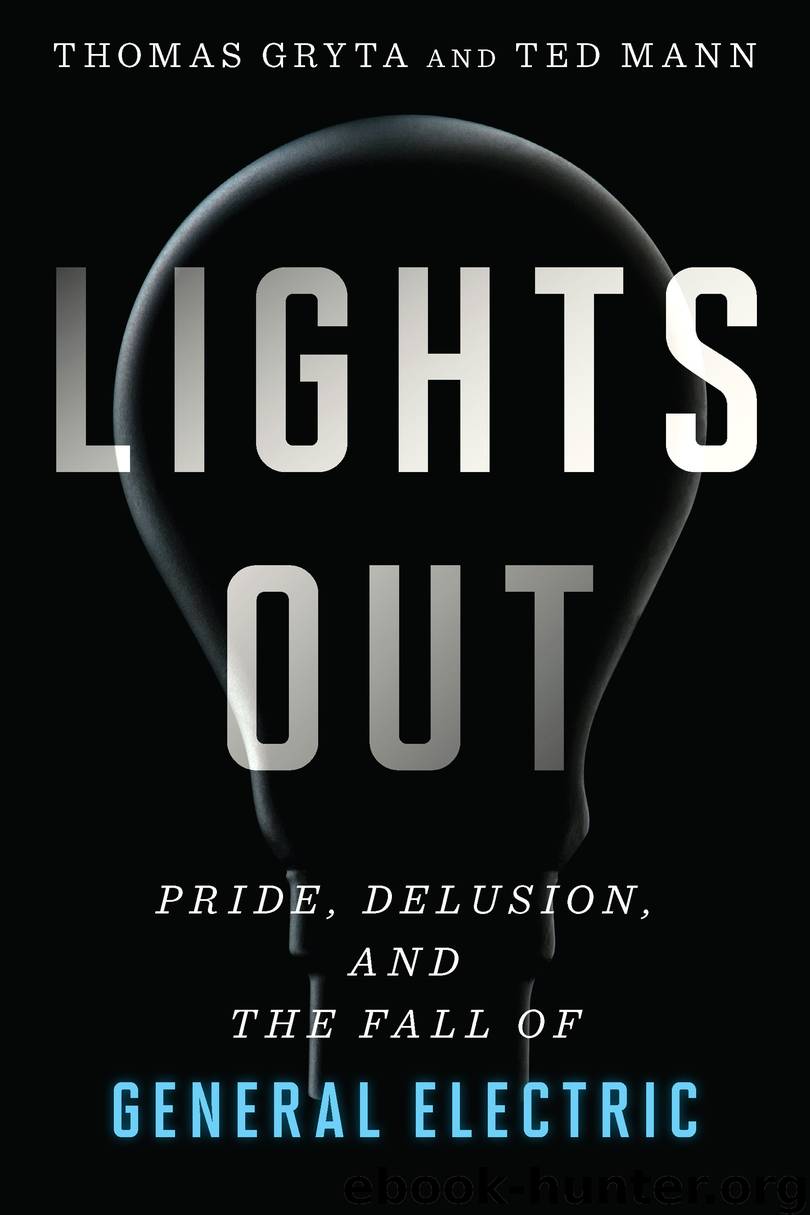Lights Out by Thomas Gryta

Author:Thomas Gryta
Language: eng
Format: epub
ISBN: 9780358129387
Publisher: HMH Books
Published: 2020-07-20T16:00:00+00:00
28
Cowboys into Farmers
AS GE COURTED new media attention and sought the public adoration it so envied in the startup economy of Silicon Valley, real life didn’t get any easier. Not with the Federal Reserve sitting in the offices of GE Capital.
No one had ever had to worry about bank supervision in the good old days of GE Capital. Back then, the business had proudly run on something like an honor code. Sales teams chased deals, won approval on the strength of their pitches to higher-ups, and either managed to make money for the company or suffered the results of an investment gone south, such as a docked bonus or a missed promotion.
But this model was anathema to the postcrisis New York Fed. Where had the company actually written down, the bank supervisors wanted to know, the absolute criteria for extending a line of credit? (They hadn’t.) Where was the risk analysis of the loans on the Capital balance sheet? Why did it have such rosy projections about which customers would pay their money back? (Capital was supremely confident in its ability to lend and foreclose without losses like the banks had suffered.) And what the hell had GE Capital been doing buying a Brazilian oil-drilling rig? (Long story.)
The teams demanding answers to these questions in the spring of 2013 reported to Caroline Frawley, the head of a New York Fed unit that had been set loose to pore through GE Capital’s books after the post–financial crisis Dodd-Frank reforms were enacted. This scrutiny sounded reasonable enough to majorities in Congress, who, having witnessed GE’s near-collapse in the crisis, thought it made sense to have the same regulators who were keeping a closer eye on the assets and balance sheets of big banks also looking at the same information from GE Capital. Capital, in the months leading up to the crash, had been effectively the seventh-largest bank in the country, but its operations had been almost impenetrable. It was a “black box,” everyone had said with a shrug—until the black box had almost dragged the company down for good.
Bank regulators and GE Capital’s proud core of deal-makers didn’t see balance sheets in the same way. And they really didn’t like each other. What Capital viewed as flexibility, and a culture of savvy deal-making, professional bank supervisors were apt to see as the absence of any meaningful rules at all. And GE Capital’s books were, to those experienced with the protocols of modern banks, a riot of tangential and unmatched risks. GE Capital’s deals—some of them entered into only to aid the industrial business units, and many of them just speculative bets—were so wide-ranging and hard to value that the exchanges between the Fed teams and Capital executives often turned combative. Capital had purchased the oil-drilling rig as part of a bet on an increase in super-deep oil exploration off the coast of Brazil (a bet the broader oil market would soon turn against). It was one of the curious assets on the Capital books that had gone south, to the surprise of the Fed team.
Download
This site does not store any files on its server. We only index and link to content provided by other sites. Please contact the content providers to delete copyright contents if any and email us, we'll remove relevant links or contents immediately.
Whiskies Galore by Ian Buxton(40332)
Introduction to Aircraft Design (Cambridge Aerospace Series) by John P. Fielding(32338)
Small Unmanned Fixed-wing Aircraft Design by Andrew J. Keane Andras Sobester James P. Scanlan & András Sóbester & James P. Scanlan(32141)
Craft Beer for the Homebrewer by Michael Agnew(17446)
Turbulence by E. J. Noyes(7039)
The Complete Stick Figure Physics Tutorials by Allen Sarah(6638)
Kaplan MCAT General Chemistry Review by Kaplan(6054)
The Thirst by Nesbo Jo(5785)
Bad Blood by John Carreyrou(5769)
Learning SQL by Alan Beaulieu(5412)
Weapons of Math Destruction by Cathy O'Neil(5037)
Man-made Catastrophes and Risk Information Concealment by Dmitry Chernov & Didier Sornette(4736)
iGen by Jean M. Twenge(4702)
Digital Minimalism by Cal Newport;(4542)
Life 3.0: Being Human in the Age of Artificial Intelligence by Tegmark Max(4507)
Audition by Ryu Murakami(4099)
1,001 ASVAB Practice Questions For Dummies by Powers Rod(4038)
Electronic Devices & Circuits by Jacob Millman & Christos C. Halkias(4027)
Pale Blue Dot by Carl Sagan(4001)
